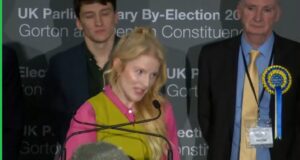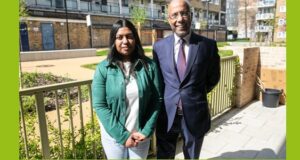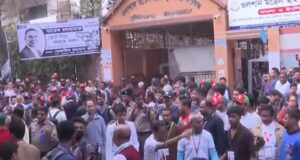Day one: and three victims are off the hook.
We cannot stress enough that all political parties which stood candidates in last May’s mayoral and councillor elections signed an election protocol before nominations closed. Under its terms, they agreed to report any concerns they had about the conduct of the election as soon as those concerns became apparent – in order that the concerns could be investigated by the Returning Officer and the police. We also cannot stress enough that there were no such reports.
However, after the election results were known, four previously unconnected individuals came together and lodged petitions in court under election law – which set out all sorts of complaints about the election. Now that the court hearing has opened, we are hearing just what superpowers these petitioners have. Not only have these four self-selecting pillars of the establishment discovered umpteen concerns about the conduct of election – concerns which they only noticed after the election result had been announced and which were not spotted at all by the political parties which would have reported them sooner – they have also been able to go back in Council records and dig up all sorts of activities which have passed everybody by.
We reported earlier that the charges against Returning Officer John Williams had been dropped. On hearing the good news, John Williams said: “I welcome the decision of the petitioners to withdraw any allegations against myself and my staff. I have always maintained that those allegations were without foundation. This was a hotly contested election run in challenging circumstances. As returning officer I am politically neutral and my only concern is to run an efficient, free and fair election. I am pleased that the petitioners accept that this election was conducted in accordance with the law and that I acted in an entirely professional manner throughout.”
Late this afternoon two other “drops” came to light. First, some allegations against the newspaper Weekly Desh were dropped: we’ll let you know what the allegations were when we find out.
Second, allegations that the Bangladesh Football Association (BFA) had taken bribes from Lutfur Rahman – in particular, that he had channelled Council money to them in return for votes – were dropped. And what a lot of problems there are with allegations like that.
When did the petitioners find out information (and what was it?) that led them to believe Mayor Rahman had bribed the BFA? Why had this not come to light before? If evidence of bribery was available, why was it not passed to the police to investigate possible criminal charges? Why did the Defendants keep the information to themselves until the election petition hearing? What was the money that Mayor Rahman handed over, where is the proof that it was given on the basis that votes would be given in return and where is the proof that they actually were?
Presumably these proofs exist, as do answers to all these questions – otherwise the petitioners would not have included this allegation in their petition. Perhaps they would care to explain themselves.
Perhaps they would also care to reflect a little. We have always said that Mayor Rahman comes under a great deal of criticism from those with a very right wing, racist and Islamophobic agenda. As such, those who do not have that agenda have to be careful in their criticisms so that they do not play into the hands of those who do have that motivation. This is not because Mayor Rahman cannot stand criticism: indeed, if there is anyone in the borough who should be awarded an honorary doctorate in “taking criticism”, it is Mayor Rahman. It is because the more our borough is made out to be a basket case, the more that very innocent people who live here and who are applying for student places or jobs will suffer in the anti-Tower Hamlets backlash.
Therefore: just what is it about Mayor Rahman that makes the petitioners think that he would seriously try to gain, or retain, office by corrupt practices? As mayor, he has to support various community activities, and he’s supported a number of footballing initiatives to the best of our knowledge. But this extra angle that he supports them in order to get votes back from them is the weird stuff. On that basis, no politician could ever support anything in case people voted for the politician in order to get the policy. Ed Miliband could be accused of corruption on the basis that families might vote for him because he supports repeal of the bedroom tax. David Cameron could be accused of shady practices if we found enough rich people who voted for him after he promised to cut the top rate of tax. The same goes for Council leaders and parties across London.
What is it that makes these four petitioners look at Mayor Rahman and go “now he’s won the election, I realise that he must have been corrupt all along”? Perhaps this will become clear in the coming weeks.
 East London News A Force for the community…
East London News A Force for the community…




